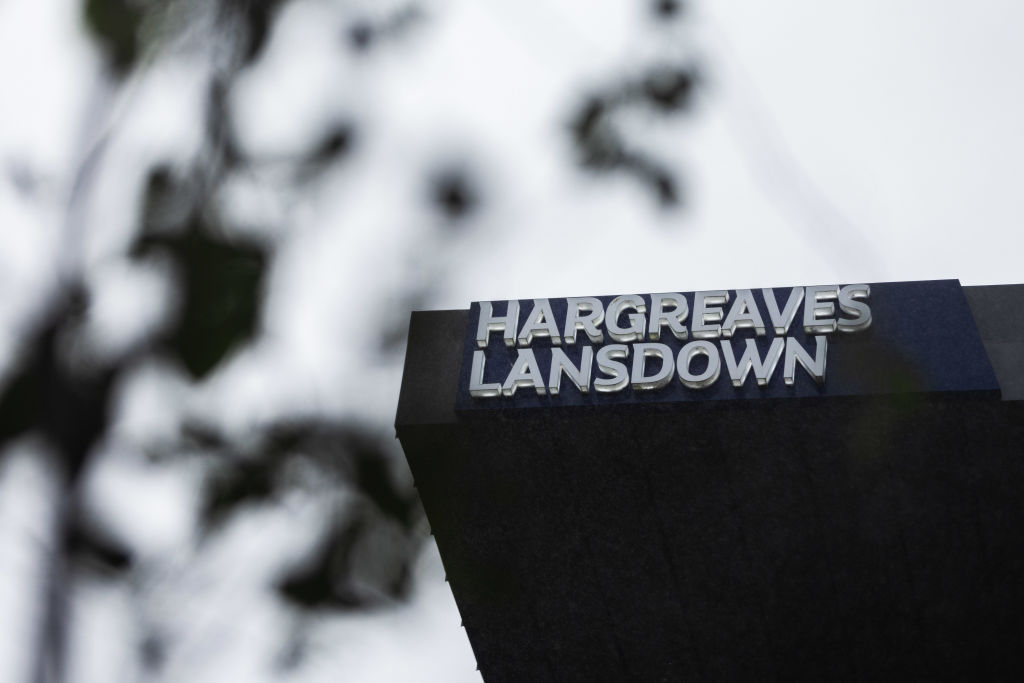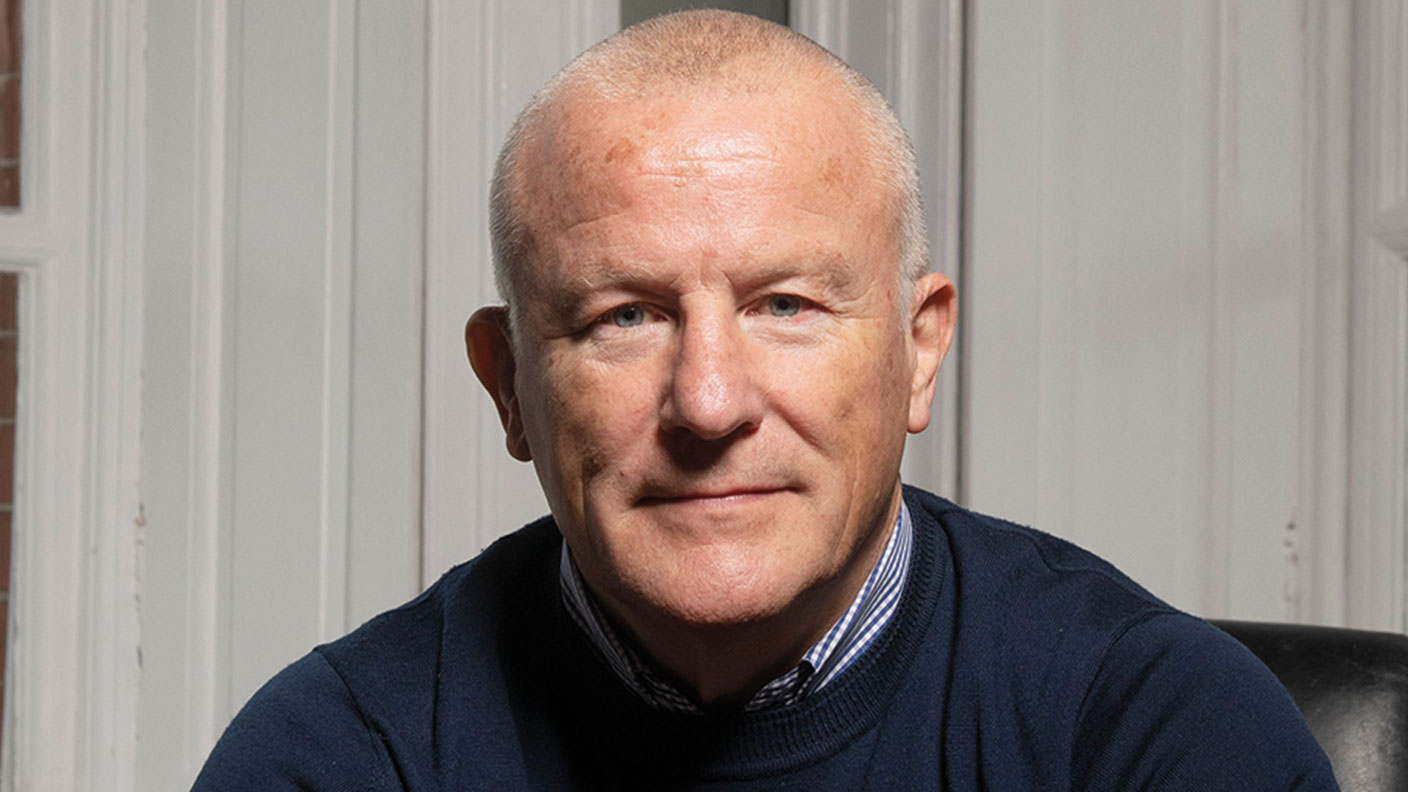Neil Woodford, fund managers, and the systemic risk to the financial system
The consequences from the Neil Woodford debacle aren't limited to his fund's investors. He and his ilk could pose a systemic risk to the financial system, says Merryn Somerset Webb.

Get the latest financial news, insights and expert analysis from our award-winning MoneyWeek team, to help you understand what really matters when it comes to your finances.
You are now subscribed
Your newsletter sign-up was successful
Want to add more newsletters?

Twice daily
MoneyWeek
Get the latest financial news, insights and expert analysis from our award-winning MoneyWeek team, to help you understand what really matters when it comes to your finances.

Four times a week
Look After My Bills
Sign up to our free money-saving newsletter, filled with the latest news and expert advice to help you find the best tips and deals for managing your bills. Start saving today!

If you have been watching the Neil Woodford saga unfolding over the last few weeks, you will know that the consequences of Woodford being forced to gate (prevent withdrawals from) his flagship Woodford Equity Income Fund are many various and increasing in number. The immediate consequences, of course, are for the investors currently trapped in the fund.
They aren't being treated particularly well by Woodford, who, having lost them a whole pile of money, is now in a maddening exemplification of the asymmetric incentives baked into fund management refusing to cut the management fee on his fund. He made a fortune from fees in his good days (his equestrian estate cost him over £13m before he started on the improvements); he's clearly determined to make as much as he can from his bad days, too (the fund is generating around £100,000 in revenue a day). It is all insanely irritating.
Woodford has tainted his investment trust too...
But the miseries don't stop there. Next up are investors in the WoodfordPatient Capital Trust (LSE: WPCT), its board. According to The Times, one investor in the trust, Seneca Investment Managers, has been approaching others (possibly including BlackRock, L&G and Quilter) in an attempt to "force changes" to the five-person board with a little "shareholder action".
MoneyWeek
Subscribe to MoneyWeek today and get your first six magazine issues absolutely FREE

Sign up to Money Morning
Don't miss the latest investment and personal finances news, market analysis, plus money-saving tips with our free twice-daily newsletter
Don't miss the latest investment and personal finances news, market analysis, plus money-saving tips with our free twice-daily newsletter
The board is not seen to be fully independent by the market: the chairwoman, Susan Searle, once ran Touchstone Investments, "an intellectual property business taken over by IP Group, a listed VC firm with ties to Mr Woodford". Another director is head of a pharmaceuticals group 24% owned by Woodford funds, and yet another is chief exec of Nexeon, a company in which the trust is also invested.
There is a lot of cosiness about. The market capitalisation of the trust has fallen from £800m in 2015 to a mere £530m and the shares are down 20% since the Woodford Equity Income Fund was shut. As a result, last week, the trust was forced to write down the value of its holding by £27m in one day, though they did say that "not in connecting with any sales by any other Woodford mandate".
Hmmm. Either way, the shares are significantly off their 100p launch, and at 58p, they are trading at a 30% discount to the stated net asset value (which might or might not be accurate the kind of unlisted companies the trust holds are very hard to value). It doesn't end there.
ThePatient Capital Trust business has a knock on to the investment trust industry. On the face of it, Woodford's very public demonstration of why it is a really bad idea to hold illiquid stocks in an open-ended investment vehicle should be brilliant for the sector suggesting as it does that anyone interested in the long-term growth on offer from private or small companies should definitely get their exposure via an investment trust (one in which you can always sell your shares). But to want to buy and hold investment trusts for the long term, you need to trust their directors to protect your capital for you. Have the board of the Patient Capital Trust done that? Not yet.
They should not have let Woodford swap illiquid assets in the income fund for a stake in the trust a few months ago (too dodgy looking) and they should not have given in and allowed him to sail so close to the regulatory wind by listing some of their top holdings on the Guernsey exchange to try and save the liquidity ratio of the Income Fund (also dodgy looking).
Alistair Osborne, writing in The Times, is not impressed. Searle he says has been presiding over "a conflict-ridden board that's been exposed as being asleep on the job".Time for them to make fact out of rumour perhaps and dump Woodford as manager of the trust?
...and the reputation of Hargreaves Lansdown
Next up in this miserable game of consequences is the brand reputation of Hargreaves Lansdown (HL), an organisation that has got away with overcharging its customers for years (sometimes a little, sometimes a lot) thanks to its ease of use, reputation as the champion of the retail investor, and brilliant customer service. The Woodford debacle is not a good look for the firm nor are the regular newspaper articles about the bonuses of its bosses.
CEO Chris Hill has, for example, said that he will defer his bonus until the Woodford fund reopens. But getting his £2.1m slightly later than planned isn't doing it for investors; they'd prefer he scrapped his bonus and had a think about also scrapping exit fees for anyone wanting to move their money from his firm. That's particularly the case given that we now know that Hargreaves Lansdown had been having regular calls with Woodford over his liquidity crisis since 2017 (in November 2017, it made him promise that he "would make no new investments into unquoted businesses", says the FT). But it still kept his fund on its best buy list.
It might have taken it off now, but its clients will be reminded of its post-pony-bolt closing of the stable door by the most recent edition of its house magazine, the Investment Times, in which Woodford features prominently. Hargreaves Lansdown says it regrets the "distress, uncertainty and inconvenience" caused to its clients as a result of its investments with Woodford. So it should.
Next there are all the other companies invested in the same firms as Woodford. Several fund managers have told me over the years that they haven't been buying stuff Woodford holds just in case of a liquidity driven fire sale (his stakes were too large for comfort). Not everyone was so smart. Spare a thought, says the FT, for Lansdown Partners and for Invesco, both firms that hold many of the same investments as Woodford and are suffering as a result.
The regulators aren't off the hook, either
There are also likely to be consequences of some kind for the regulators here. The Financial Conduct Authority (FCA) now says that the liquidity breaches of Woodford funds were raising red flags in early 2018. Some might think that the FCA might have stepped in sooner particularly given the profile of Woodford's investors.
In most trouble here might be Andrew Bailey, head of the FCA. He has been appearing in front of the select committee as part of a series of regular hearings on the FCA's work. But, as the FT points out, the stakes for Bailey are "particularly high" at the moment. He is one of the frontrunners to replace Mark Carney as the governor of the Bank of England. The thing he doesn't need is everyone asking awkward questions about the role of the FCA in this whole miserable affair just when he needs his CV to look at its shiny best.
Finally, it is worth noting that the whole incident has significantly raised awareness of liquidity risk. Funds all over the place are rushing to reassure us all that they aren't breaching any rule and have no illiquidity problems. In most cases this will be true. But last week Mark Carney pointed out that $30trn of global assets are held in investment funds that promise daily liquidity to investors, despite investing in potentially illiquid underlying assets. "Under stress," he said, "they may need to fire-sell assets, magnifying market adjustments and triggering further redemptions a vicious feedback loop that can ultimately disrupt market functioning".
We have said this before, but if you hold, say, emerging-market bonds, high-yielding bonds, or much in the way of unlisted assets (even commercial property) in open-ended funds, now is as good a time as any to think about whether you have chosen the correct structures (quick answer: probably not).
I could go on. There will be more consequences (the conversation about whether financial regulation should be less rules-based and more principles-based is back on, for example). But the point is not just that the Woodford debacle has consequences. It is that those consequences are rippling out all over the place. It's just one fund. It's just £3.7bn. But look at the ripples and you will understand why so many regulators and central bankers see fund managers as a systemic risk to the financial system.
Get the latest financial news, insights and expert analysis from our award-winning MoneyWeek team, to help you understand what really matters when it comes to your finances.

-
 How a ‘great view’ from your home can boost its value by 35%
How a ‘great view’ from your home can boost its value by 35%A house that comes with a picturesque backdrop could add tens of thousands of pounds to its asking price – but how does each region compare?
-
 What is a care fees annuity and how much does it cost?
What is a care fees annuity and how much does it cost?How we will be cared for in our later years – and how much we are willing to pay for it – are conversations best had as early as possible. One option to cover the cost is a care fees annuity. We look at the pros and cons.
-
 Hargreaves Lansdown takeover: what it means for your money
Hargreaves Lansdown takeover: what it means for your moneyBritain’s biggest investment platform has agreed a £5.4 billion takeover. What does it mean for shareholders and customers?
-
 Neil Woodford’s back – but has he really learned anything?
Neil Woodford’s back – but has he really learned anything?Opinion Disgraced fund manager Neil Woodford is planning a comeback. But he doesn’t seem to have learned much from his many mistakes. So why would anyone invest with him now?
-
 Neil Woodford’s back – but sometimes sorry isn’t enough
Neil Woodford’s back – but sometimes sorry isn’t enoughAdvice Neil Woodford’s funds blew up in 2019. Now he is on the comeback trail. But his apologies are unconvincing.
-
 Woodford investor? Your first payment is coming soon
Woodford investor? Your first payment is coming soonNews Private investors left stranded by the collapse of the Woodford Equity Income fund will soon be getting at least some of their money back. But they will have to wait a while longer to see how much more – if any – they will receive.
-
 Neil Woodford continues to cast a shadow over his successor at Invesco
Neil Woodford continues to cast a shadow over his successor at InvescoFeatures Mark Barnett, former star manager Neil Woodford’s successor at Invesco, has applied the same formula, and is struggling.
-
 Is it time to buy Patient Capital Trust?
Is it time to buy Patient Capital Trust?Features Neil Woodford’s Patient Capital Trust has been taken over by asset manager Schroders. The share price has surged - but should you buy in? John Stepek looks at the trust’s prospects.
-
 Neil Woodford: no silver lining for his investors
Neil Woodford: no silver lining for his investorsEditor's letter Neil Woodford made every mistake it is possible to make as a money manager. And his investors have been stiffed. But however wrong it all went, Woodford never stopped taking the fees.
-
 Woodford believed his own hype – now his investors are paying the price
Woodford believed his own hype – now his investors are paying the priceFeatures Neil Woodford was once one of the brightest stars in Britain’s investment firmament. Then he came crashing down to earth. John Stepek explains what went wrong.